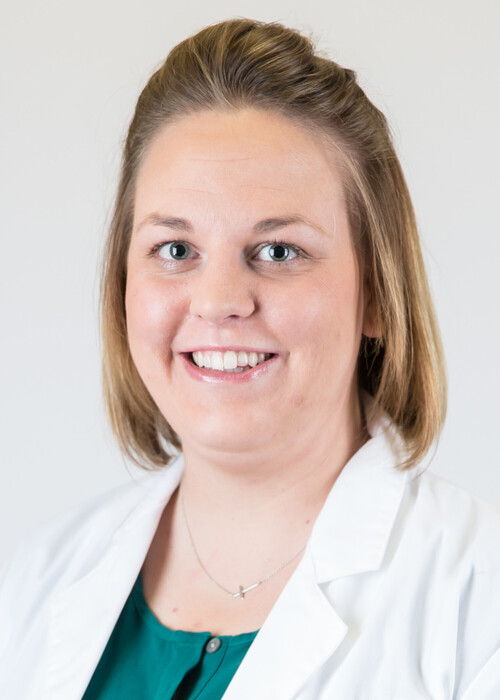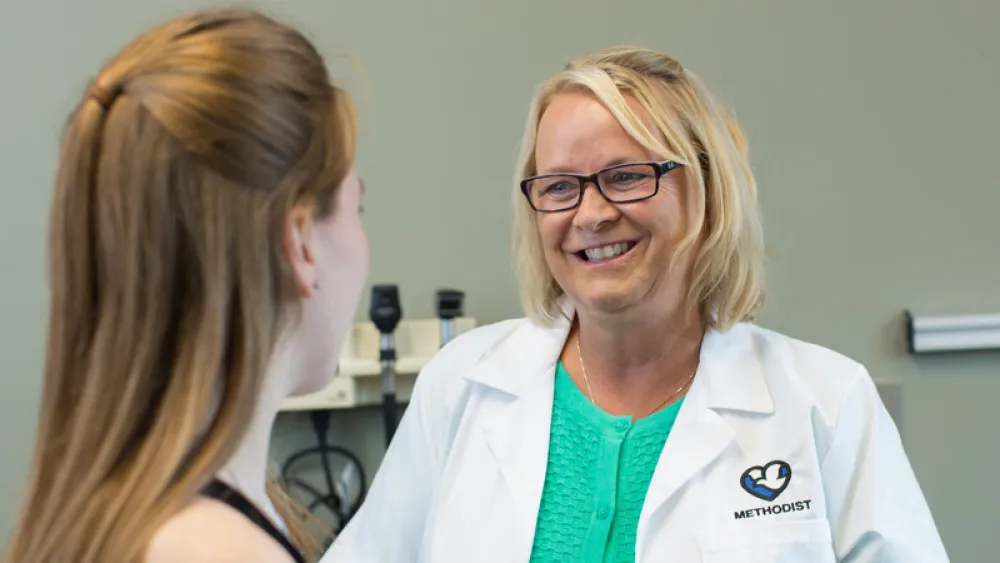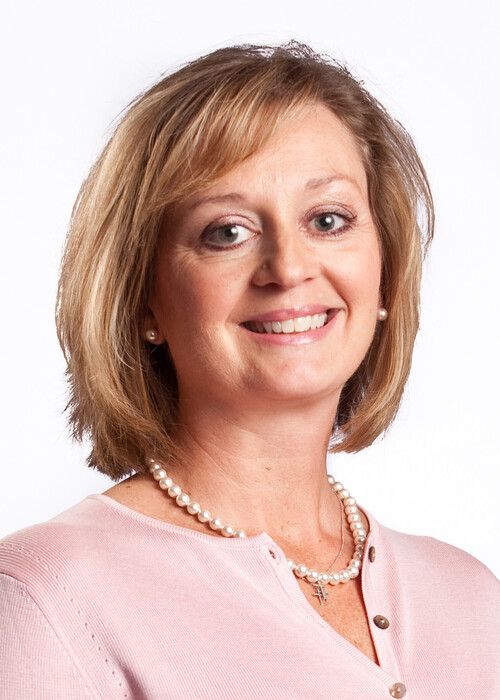





Today's Medicine
‘I Love Coming to Work’: Methodist Nurse Practitioners Show Countless Patients The Meaning of Care
Published: Nov. 17, 2022

Sandi Leaders is a nurse practitioner specializing family medicine at Methodist Physicians Clinic in Malvern, Iowa.
In her 28 years as a nurse practitioner, Sandi Leaders, ARNP, has cared for thousands of patients. And she has no plans of slowing down.
“Everybody keeps asking me when I’m going to retire,” said Leaders, 67, who specializes in family medicine at Methodist Physicians Clinic in Malvern, Iowa. “What keeps me going every day is that relationship you get with your patients. They become family almost. You see them from generation to generation. You see the kids growing up. And the parents, you go through all the heartaches that they go through with their children – or when they lose a parent, you feel that. I just can’t give it up. I love coming to work every single day.”
Leaders is one of the more than 100 nurse practitioners working across dozens of specialties in Methodist Health System hospitals and clinics. While some patients may not be immediately familiar with how nurse practitioners fit into their care, they quickly learn how skilled and compassionate these providers are.
“We have advanced degrees that teach us how to examine, diagnose and treat appropriately,” said Jenn Van Meeteren, MSN, APRN, FNP-BC, who sees patients at several Methodist Urgent Care locations. “And we’re very collaborative with our physician counterparts for things we maybe haven’t seen in our years of experience. We know how to connect patients to the right people.”
“A Badge of Honor”
When Leaders was in high school, her mother became ill, and she was thrust into the role of caring for her family. Leaders took on the cooking and helped her siblings get to school and work. And in the course of caring for her mother, she became interested in medicine.
Leaders went on to get her nursing diploma at what is now Methodist Jennie Edmundson Hospital, and she completed the nurse practitioner program at Clarkson College.
“Being called a nurse and a mom – those are the best two things in my life,” she said. “I wear it with a badge of honor. And being a nurse practitioner just took me to the point where I could do a little bit more of that holistic care outside of the hospital and make an impact on people’s lives.”
Leaders joined Methodist about five years ago. She started at the Methodist Community Health Clinic as a primary care provider. She transitioned to the Malvern clinic about two years ago and immediately felt at home.
She especially likes how the small clinic reflects the community’s identity.
“I like doing family practice in a rural community because you form those family bonds,” she said. “But a nurse practitioner can only be as good as those who also work at the clinic, starting with the receptionist and nurse. We show patients that they’re going to be respected. We’re going to listen. We’re going to communicate. They’ll always feel that they’re our first priority and that each and every one of them is special.”

A Trusted Provider
Van Meeteren is also familiar with how quality health care benefits a tight-knit community. Growing up in Schuyler, Nebraska, she was interested in health care for as long as she could remember. After seeing the impact a local nurse practitioner had, Van Meeteren decided to follow the same path.
“It was really the relationships she had with her patients and the connections they had with her that inspired me,” said Van Meeteren, who’s been a nurse practitioner for nine years. “I knew I wanted that same kind of connection and relationship – to be able to help people the same way she was helping people in our community.”
Van Meeteren frequently works at the Methodist Urgent Care clinic in Fremont – an experience that’s brought her full circle.
“While Fremont is a good-sized city, it has a huge rural community that we’re servicing, as well,” she said. “Having grown up in a small town, I think I probably better understand where that rural patient is coming from when they say something has been going on for a month, or understanding that during harvest season, it’s really hard to take time out of their day to come in. That’s the same stuff my dad is telling me because he’s that same small town patient.”
Van Meeteren’s interactions with patients can be brief; some she may never see again. But she finds satisfaction in knowing she’s making an impact on someone in need of care.
“In the urgent care setting, we have such a short window, even just a few minutes face to face with a patient to really understand where they’re coming from,” she said. “They’re usually in a pretty vulnerable place because they don’t feel good or they’re hurt, and they can’t get into their trusted primary care provider. So they have to have a lot of trust in this person that they get to see.
“I’m able to sit down with them for a few minutes and connect, letting them know that even though I’m not the person they see regularly, I’m still going to take the same great care of them and make sure that we get them feeling better and do what’s best for them.
“And I think I’m really able to achieve that. We get a lot of return patients. They know that if they can’t get into their primary care provider, they can come back and see me or one of my colleagues, and they’re still going to get the same great care that they’re used to.”

The Cutting Edge of Care
In contrast to Van Meeteren’s care for urgent but minor medical issues is the work of nurse practitioner Neika Coughlin, MSN, APRN-BC. Coughlin, who specializes in cardiology, spends much of her time at Methodist Hospital, working with cardiologists to create treatment plans for patients with heart issues. She also sees patients at the Methodist Cardiac and Vascular Diagnostic Center, where she supervises cardiovascular stress tests.
Coughlin’s first job after nursing school was in a cardiac intensive care unit (ICU). She went on to work in an emergency department and trauma ICU, then came to Methodist in 1995 as a clinical nurse specialist caring for cardiac ICU patients.
“I always came back to cardiology,” said Coughlin, who’s been a nurse practitioner since 2004. “That was just my first love. Once you have coronary artery disease, you’re going to have it forever, so helping patients maintain their highest quality of life when they have a chronic illness is a challenge. And I enjoy the things I’m able to do in my role. Whether I’m determining a diagnosis, planning care, teaching patients or prescribing medication, each step can make a difference, and that’s meaningful to me.”
She’s also proud to be part of Methodist’s commitment to cardiology – one of its core service lines – and providing patients with the most advanced, comprehensive care.
“We can help with preventive measures to keep folks out of the hospital, but we’ve also got all the technology and skill within the system to be on the cutting edge of providing high-quality care,” she said. “For those folks who present acutely and it’s the first time that we see them, I think they can be comforted in knowing that from the time they come through the emergency room door, and through their recovery, they’ll be getting the best care at all levels – from the cardiologists and advance practice providers; the nursing and ancillary staff during their inpatient stay; the care navigators who guide them through heart failure; inpatient and outpatient cardiac rehab to help them increase activity; diet, exercise and risk factor modification; and clinic visits for appropriate follow-up. This includes communication with the patient's primary care provider. The continuum of care from the time you enter the system and throughout the entire process is key.”
Like Leaders and Van Meeteren, Coughlin is driven to not only practice medicine at the highest level but also provide a compassionate, personalized experience – showing each patient The Meaning of Care.
“That’s my passion,” she said. “I love people, and I love my patients. I feel like this is a great way for me to serve them and hopefully help them have a better quality of life. As long as I can keep feeling like I’m doing that part of my job, I’ll keep coming back.”
More Resources
- Explore the dozens of specialties offered by Methodist.
- Read more inspiring stories about Methodist patients and staff members.
- Follow Methodist on Facebook, Instagram and Twitter.


